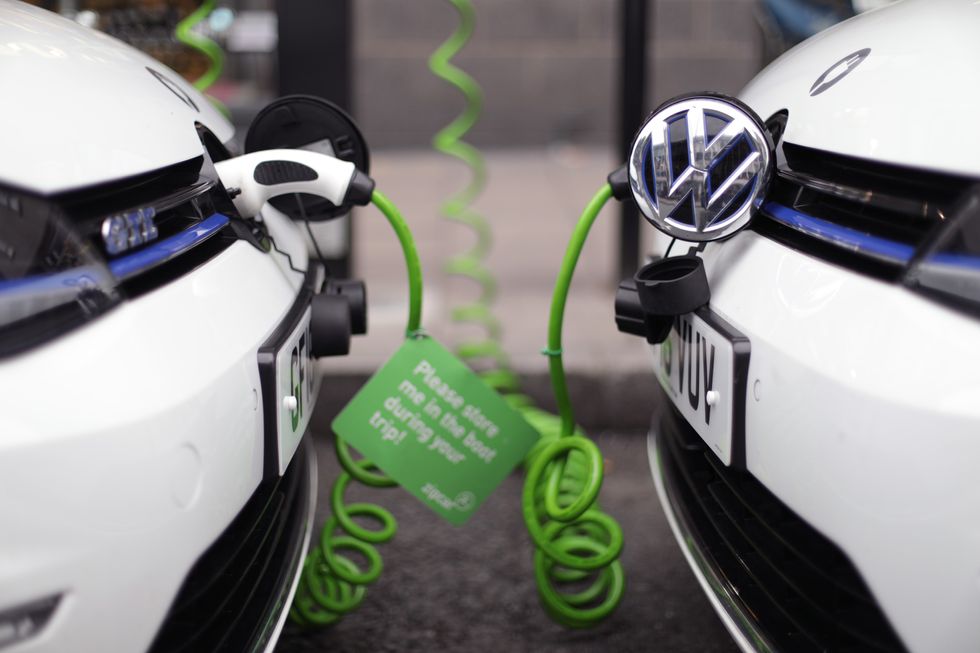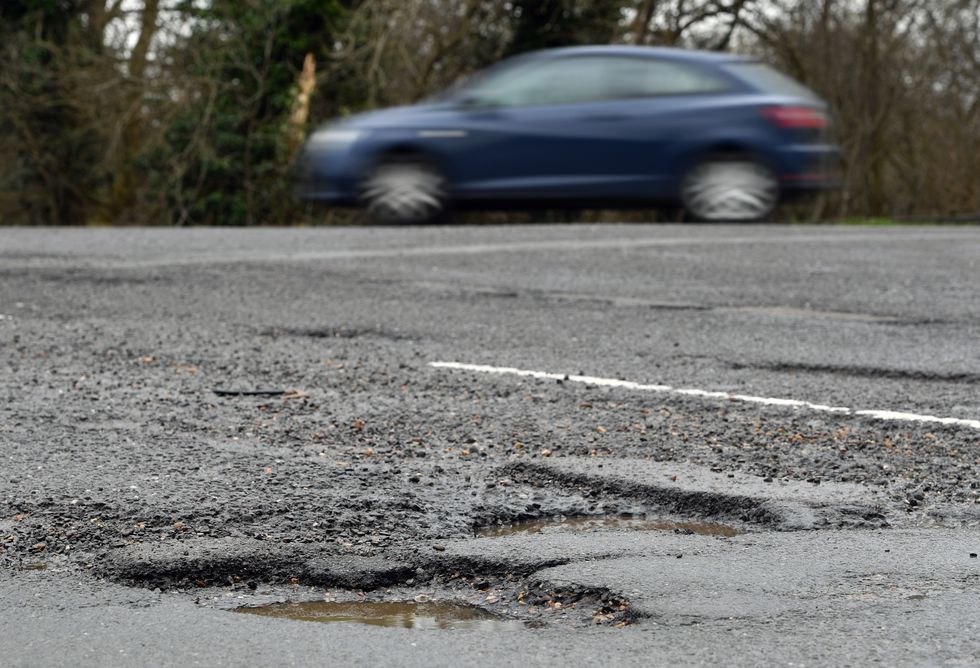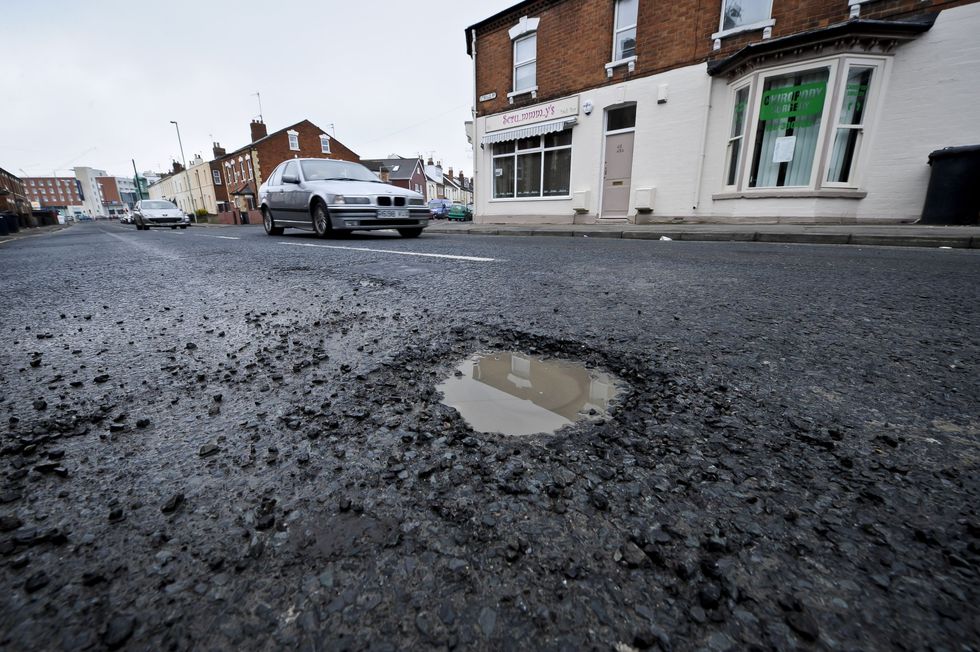
An electric vehicle being charged
PA
The Government will ban the sale of new petrol and diesel cars by 2030
Don't Miss
Most Read
Latest
Electric cars damage roads twice as much as petrol equivalents, a report has claimed.
Average electric cars put 2.24 times more stress on roads than petrol versions.
Britain is already facing a pothole crisis after it was revealed half as many have been filled in the last year compared to a decade ago.
The cost of filling all of the UK’s potholes also stands at £12billion.

A pair of Zipcar club car-sharing Volkswagen Golf GTE plug-in petrol-electric hybrid cars being recharged on a street in central London
PA
Pothole-related call-outs had also grown by a third over the last year.
Automotive services company AA revealed it responded to a staggering 52,000 incidents in April.
The number of electric cars being driven has tripled to 900,000 since 2019.
The figure looks set to continue to rise as the Government will impose a ban on the sale of new petrol and diesel cars by 2030.

A car passing potholes in a road near Peterborough
PA
The Department for Transport has warned as many as four in five miles could be driven by electric cars by 2035.
Electric cars, which according to the study were on average 312 kilograms heavier than similar petrol versions due to the size of their batteries, appear more likely to create small cracks on roads.
Such cracks can expand and develop into potholes if not promptly addressed.
Rick Green, chair of the Asphalt Industry Alliance, previously told The Telegraph: “Unclassified roads would not have been designed to accommodate HGV axle weights, so heavier electric cars could exacerbate existing weakness thereby accelerating decline.”

Cars pass by a pothole near the Gloucester city centre
PA
A separate study by the University of Edinburgh revealed electric lorries could increase the damage to roads in Scotland by almost a third.
It could cost the Scottish Government and local councils an additional £164 million to maintain roads if all buses and lorries became electric, researcher John Low has said.
He explained: “Given the overwhelming impact of larger vehicles, the proportion of large vehicles would have to be very much smaller than the nationwide average for the impact of cars etc to be significant.”
Low added: “There are also other fuel options where this could be less of an issue, like hydrogen vehicles, which are only slightly heavier than diesel ones, where effect would be greatly reduced. Synthetic fuels are another possibility.”





































